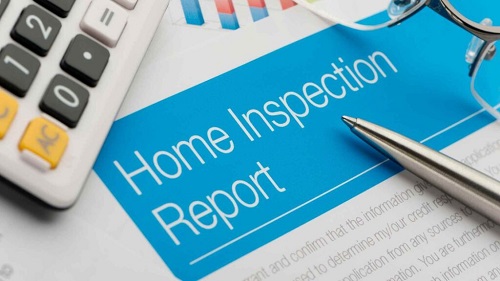
Mortgage Dove
Co-signing a Mortgage Loan: What Both Parties Should Know
Co-signing a mortgage loan is a big responsibility that cannot be taken lightly. When co-signing for a friend, family member, or anyone else, it's necessary to understand the potential risks and obligations involved. By co-signing, you agree to take on significant financial responsibility and put your credit and financial future at stake.
This article will discuss what you need to know before co-signing a mortgage loan, including the responsibilities and consequences of being a co-signer. We will also provide tips for protecting yourself and your credit if you want to co-sign. Whether you are a first-time co-signer or have experience in this area, it's crucial to be informed and prepared before making a decision.
What is a co-signer?
A co-signer is a person who agrees to take on the financial responsibility of the primary borrower’s loan if they are no longer able to do so and is usually a family member, friend, spouse, or parent.
Co-signing for a loan is a legally binding contract and isn’t just a character reference. As a co-signer, the lender can come after you if the primary signer defaults. Whether or not you live in the house, you can still be held responsible for the missed loan payment.
Why would you co-sign for a loan? Co-signing for a loan is to assist family members or friends with bad credit who want to take out a loan. If your mortgage application is weak, getting a friend or family member to co-sign on your behalf makes you a much more appealing candidate.
What are my responsibilities as a co-signer?
When you sign a mortgage note as a co-signer, you agree to repay the loan or take over the payments if the borrower stops paying. You may be unable to cover the entire amount if you lack financial flexibility.
The following things can happen if the mortgage amount is not paid on time each month:
- Your credit report could reflect delinquent payments.
- If you make late payments, you'll be charged late fees.
- If the mortgage goes into foreclosure, your credit record will reflect the foreclosure, which could affect your ability to obtain loans in the future.
- Your credit score may drop, and if that happens, it will affect the interest rates on your future loans.
Furthermore, you are taking on a lot of debt, which could affect your credit score and debt-to-income ratio. You may not want to co-sign if you plan to borrow money anytime soon as the added obligation could hinder your loan application.
Process of co-signing a mortgage loan
Imagine you want to purchase a home with a mortgage loan but have bad credit.
When you apply for pre-approval, lenders may not be able to offer you the best interest rates. It may be difficult for you to get approved because of your credit score. You ask your mother to co-sign your loan application since she has a credit score of 800. She accepts and signs her name on the applications.
Suddenly, you are a much more attractive candidate for a mortgage. Lenders consider both your and your mother's income when evaluating your application. Lenders also consider your mother’s credit, debt, and finances when they look at your application and decide to approve you for your loan.
From here, the mortgage works just like it would if you were the only person on it. You pay a monthly fee to cover your principal, interest, taxes, and insurance (PITI) and get to enjoy your home. However, if you default on a payment, the lender may hold the non-occupant co-client responsible. It means your lender can take your mother to court and force her to repay the loan.
Co-signing does not apply just to mortgage loans. You may also have a co-signer on a personal, student, or auto loan.
Depending on the type of loan you take out, you may be able to have a co-signer. Mortgages with co-signers generally fall into two categories: conventional loans and FHA loans. Here are the limitations of both types of loans.
Conventional loan co-signer requirements
When applying for a conventional loan with a co-signer, they must sign the loan and agree to repay the mortgage if the primary occupant defaults. Although, the co-signer doesn't have to be on the home's title. The lender looks at your credit and the co-signer’s credit to determine if you qualify for a loan.
A lender will also look at the debt-to-income (DTI) ratio of you and your co-signer when evaluating your application. Every lender has their own standards for what they consider an acceptable DTI. It can be easier to get a loan if you know both your debt-to-income ratio and that of your co-signer.
FHA Loan co-signer requirements
FHA loans are government-backed loans that allow you to buy a home with a lower credit score and as little as a 3.5% down payment. If you want to apply for an FHA loan with a co-signer (you can have a maximum of two), your co-client must meet a few basic requirements.
First, your co-signer must be a family member or close friend. FHA loans allow the following relatives to be co-signers:
- Parents/grandparents (including step, adoptive and foster)
- Children (including step, adoptive and foster)
- Siblings (including step, adoptive and foster)
- Aunts and uncles
- In-laws
- Spouses or domestic partners
Adding a co-signer who is a close friend will require you to write another letter to your mortgage lender explaining your relationship and why your friend wants to assist you.
Your non-occupant co-client must also live most of the year in the United States. Their DTI must be below 70% if you have less than 20% down. An FHA loan requires the co-signer to be on the title.
Benefits of having a co-signer
You can get a mortgage much easier if you have a non-occupant co-client. Here are a few of the benefits that come with applying for a mortgage with a non-occupant co-client:
Looser credit score requirements
Your credit history strongly influences your ability to get a mortgage. Those who have bad credit may have trouble qualifying for a loan. However, lenders may be more lenient if you have a non-occupant co-client with good credit.
Assistance with employment requirements
You must have a steady and reliable income before a mortgage lender can give you a loan. You may find this difficult if you're self-employed or have a recent gap in your resume. If you need to fill this requirement, you can look for non-occupant co-clients with good employment histories.
Possible larger and cheaper loan
When you have a non-occupant co-client on your loan, the lender considers both of your incomes when determining how much you can borrow. Because of this, you might qualify for a larger loan. Of course, you should be confident that you can make the payments before you accept the loan.
Moreover, since a co-signer reduces the risk to lenders, a loan with a co-signer should come at a lower interest rate than someone with bad credit could qualify for on their own.
Drawbacks of co-signing a loan
As the non-occupant co-client, co-signing for a loan comes with several risks. Let’s review them.
Potential responsibility for payments
As a co-client, you must pay the loan if the primary occupant cannot do so. As a result, this premium will have to come out of your pocket, and you cannot refuse to pay it.
Difficulty getting out of the loan
Once you co-sign on a mortgage loan, you will find it difficult to get out of it. It doesn’t matter if you fall out with the primary occupant, and you will still be responsible for their missed payments.
A legal tie to the loan
As a non-occupant co-client, you are just as legally responsible for the loan as the occupant. There is a possibility that the lender will sue you for legal fees and any outstanding late payments if you fall behind on your coverage.
Your credit may suffer
You put your credit on the line by co-signing for a loan. If the primary occupant misses a payment, your credit will also suffer. If you’re going to co-sign a mortgage, you must be aware of all the long-term negative consequences that could result from the default of the occupying borrower.
Are there alternatives to asking me to co-sign?
Yes, affordable homebuyer programs are available to borrowers with low incomes. You may have to put down a certain amount, take a home-buying class, or purchase mortgage insurance. In most cases, first-time homebuyers have access to more resources, although you may qualify if you have not owned a home or held a mortgage for several years.
Buying a home with the help of government programs such as the Federal Housing Administration (FHA) and Veterans Affairs (VA) may be possible for some borrowers. Some mortgage programs allow borrowers to accept gift funds as down payments or to increase their down payment. For many parents, it may be more financially advantageous to make a gift toward the down payment than to assume the responsibilities of a co-signer.
Families and individuals may also qualify for a primary residence loan through housing assistance programs in some states.
Before deciding whether to co-sign, you can suggest that the borrower apply for a mortgage and see if they qualify for more traditional options.
For those ready to move beyond past financial mistakes, having a financially responsible co-signer can help you rebuild your credit and secure the financing you need to purchase a home. Just ensure that you both are aware of your rights and responsibilities in the arrangement.
"Mortgage Dove makes home financing convenient for every American. You can count on us to provide a home buying experience tailored to your personal needs and financial situation. We strive to give you the peace of mind that your home financing goals can be achieved.”

Mortgage®
www.mortgagedove.com



-and-how-does-it-work.png)